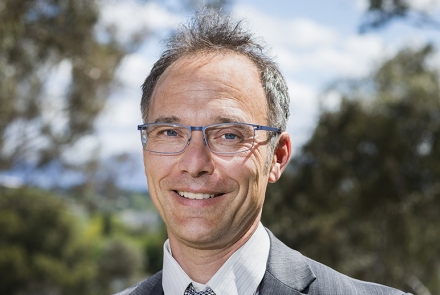
Intergovernmental Panel on Climate Change appoints Crawford expert to synthesis report team
Crawford School’s Professor Frank Jotzo will be joining a team of authors including the ANU Climate Change Institute’s Professor Mark Howden to write and review the Intergovernmental Panel on Climate Change (IPCC) Synthesis Report for the Sixth Assessment Report (AR6), the document that integrates all IPCC reports in the Sixth Assessment cycle.
The role of the IPCC is to bring together scientific understanding of all aspects of climate change for the governments of the world. The Synthesis Report is the single most read document produced by the IPCC.
Professor Jotzo highlighted the scale of the challenge in producing the Synthesis Report.
“It’s a huge task to provide integration across science, impacts and emissions reductions so that the main insights stand out,” he said.
“The IPCC reports contain an avalanche of detail that matters but goes below the radar of decision makers. The Synthesis Report is vital as it will be only IPCC document that many decision makers read.
“It’s testament to the strength of ANU climate change expertise that two out of the 39-strong global core writing team are based here at ANU,” Professor Howden added.
Prof Howden, who is the IPCC’s longest standing participant, emphasised that the IPCC is increasingly recognising the need for more integrated climate change solutions which bring together emissions reduction, climate adaptation and the Sustainable Development Goals.
“For the first time AR6 puts climate change responses in the context of broader Sustainable Development Goals, which means that increasing attention needs to be paid to adoption pathways and institutional responses,” he said.
Prof Jotzo highlighted three trends in relation to emission-reduction.
“Firstly, new knowledge on climate change mitigation is now largely based on real world practical examples, rather than theory. Secondly, governments are using a wide variety of policy instruments to address climate change - this is a function of their economic, social and political contexts. Thirdly, the cost of zero emissions technologies has fallen so that many of them are now becoming competitive with high carbon alternatives.”
The AR6 Synthesis Report is scheduled to be released in May 2022, in time to inform 2023 global climate negotiations, when countries will review progress towards Paris Climate Agreement goals, including limiting global warming to well below 2°C.
Find out more here.
Updated: 19 July 2024/Responsible Officer: Crawford Engagement/Page Contact: CAP Web Team













